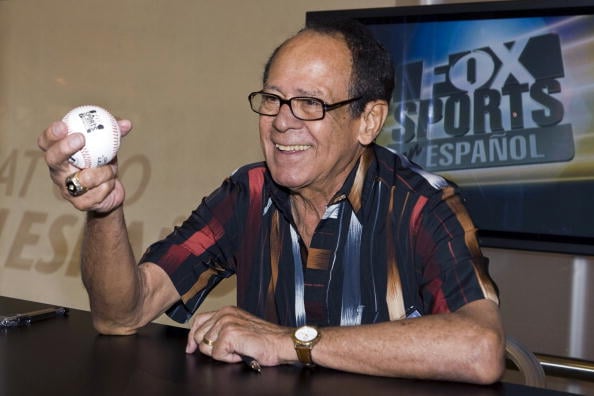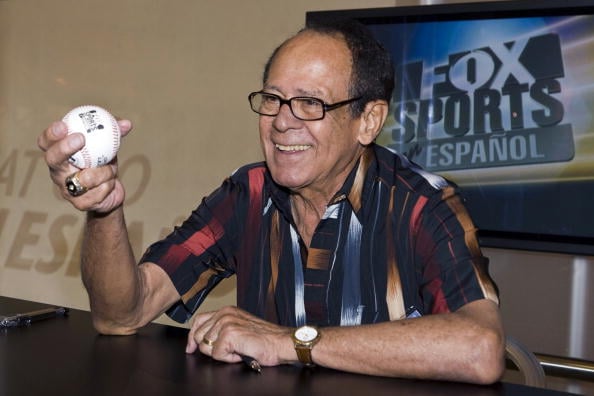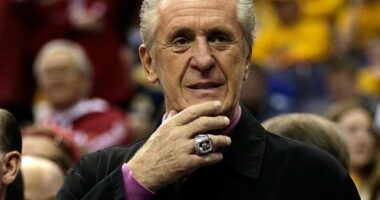Share this @internewscast.com
What is Luis Aparicio’s net worth?
Luis Aparicio, a celebrated former professional baseball player from Venezuela, boasts a net worth of $3 million. Known for his remarkable speed, exceptional fielding capabilities, and shrewd baserunning, Aparicio redefined the shortstop position throughout the 1950s and 1960s. As the first Venezuelan inducted into the Baseball Hall of Fame, he stands as a pivotal Latin American figure in the sport’s history. His 18-year career spanned teams like the Chicago White Sox, Baltimore Orioles, and Boston Red Sox, during which he garnered nine Gold Glove Awards, ten All-Star selections, and led the American League in stolen bases for nine straight seasons. Aparicio’s dignified conduct both on and off the field paved the way for future Latin American athletes.
Early Life
Born Luis Ernesto Aparicio Montiel on April 29, 1934, in Maracaibo, Venezuela, he was steeped in baseball from a young age. His father, Luis Aparicio Sr., was a revered player in Venezuelan leagues, and his mother’s family also had deep baseball roots. Immersed in this environment, Aparicio exhibited extraordinary athletic talent early on. He debuted in the Venezuelan Winter League as a teenager before being signed by the Chicago White Sox organization in 1953. By 1956, at 22, he had entered the Major Leagues, immediately impressing with his speed and defensive mastery.
Career
Aparicio’s inaugural season with the Chicago White Sox in 1956 was nothing short of outstanding. He posted a .266 batting average, led the American League with 21 stolen bases, and became the first Latin American to win the Rookie of the Year Award. He quickly made his mark as a top-tier defensive shortstop, known for his reliable hands, quick reflexes, and impeccable footwork. From 1956 to 1964, he was the cornerstone of Chicago’s infield, securing six consecutive Gold Gloves and helping the team reach the 1959 World Series—their first since 1919.
In 1963, the Baltimore Orioles acquired Aparicio, where his seasoned leadership and defensive skills played a crucial role in the team’s ascent to becoming strong contenders. By 1966, he was instrumental in leading the Orioles to their inaugural World Series title, providing defensive stability behind a promising pitching lineup that included Jim Palmer. Following his time with the Orioles, Aparicio returned to the White Sox for several seasons before concluding his career with the Boston Red Sox, retiring in 1973.
Throughout his 18-year tenure, Aparicio amassed 2,677 hits, 506 stolen bases, and maintained a .972 fielding percentage—impressive stats for a shortstop focused primarily on defense in an era where such players weren’t expected to contribute significantly offensively. As a ten-time All-Star and the league’s stolen base leader for nine seasons from 1956 to 1964, he revolutionized the role speed played in baseball.

Getty
Contracts, Salaries & Career Earnings
In an era preceding the multi-million dollar contracts of today, Aparicio’s career earnings were modest. During the late 1950s and early 1960s, leading players typically earned between $25,000 and $40,000 annually. Aparicio was consistently one of the highest-paid players on the White Sox and later saw his salary peak at around $100,000 with the Orioles and Red Sox. His total career earnings are estimated at $800,000 to $1 million. Despite these relatively lower figures, Aparicio’s earnings marked a significant achievement for an international player at the time, especially since most Latin American athletes then faced limited opportunities and lower compensation compared to their American peers.
Legacy and Honors
Luis Aparicio was inducted into the National Baseball Hall of Fame in 1984, becoming the first Venezuelan player ever to receive the honor. His induction was a source of immense national pride, and he remains a revered figure in Venezuelan sports history. In his home country, his number 11 jersey was retired by the Venezuelan Winter League team Tiburones de La Guaira, and the main baseball stadium in Maracaibo—Estadio Luis Aparicio “El Grande”—bears his name.
In the United States, Aparicio’s influence extended far beyond statistics. His defensive brilliance and speed helped redefine the shortstop position, shifting it from a purely defensive role to one where agility, athleticism, and offensive pressure through base-stealing became key strategic elements. He inspired generations of Latin American infielders, paving the way for stars like Omar Vizquel and José Reyes.
Post-Playing Career and Personal Life
After retiring from professional baseball, Aparicio returned to Venezuela, where he remained active in promoting the sport. He has served as a mentor to young players, participated in ceremonial events with Major League Baseball, and continued to be honored by both American and Venezuelan organizations for his contributions. Aparicio has largely avoided public controversy, maintaining the same quiet dignity that defined his playing days.
All net worths are calculated using data drawn from public sources. When provided, we also incorporate private tips and feedback received from the celebrities or their representatives. While we work diligently to ensure that our numbers are as accurate as possible, unless otherwise indicated they are only estimates. We welcome all corrections and feedback using the button below.
(function() {
var _fbq = window._fbq || (window._fbq = []);
if (!_fbq.loaded) {
var fbds = document.createElement(‘script’);
fbds.async = true;
fbds.src=”
var s = document.getElementsByTagName(‘script’)[0];
s.parentNode.insertBefore(fbds, s);
_fbq.loaded = true;
}
_fbq.push([‘addPixelId’, ‘1471602713096627’]);
})();
window._fbq = window._fbq || [];
window._fbq.push([‘track’, ‘PixelInitialized’, {}]);





